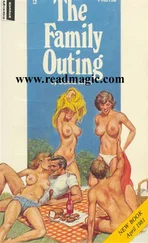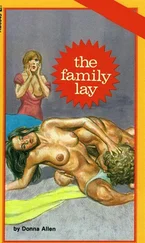“You know who else you saw going out of the front door,” Lisette persisted. “I know that you know, Sandie, because I know you saw exactly what I saw. And I know.”
“No one!” spluttered Allisande. “I saw no one . Nobody went out of the front door apart from those policemen with the body.”
“Ah!” said Lisette. “I see what you’re doing. You’re telling the truth and lying at the same time.”
Allisande began to sing again: “John Brown’s boots are polished so fine, John Brown’s spurs they jingle and shine. On his coat a crimson flower, in his hand a glass of red wine . . .”
“You know who killed Perrine,” Lisette raised her voice to be heard over the song. “You know it not because of anything you saw, but because it’s the only possibility.”
“In the night, the golden spurs ring. In the dark, the leather boots shine. Don’t come tapping at my window now your heart no longer is mine . . .”
“You know when it was done, and why.”
“Don’t come tapping at my window now your heart no longer IS MINE!”
“You know why Perrine’s bed was dismantled, taken and reassembled on the jetty. The police would never work that out, would they, Sandie? Not unless we tell them. And we have to. We have to explain to them why Perrine’s killer or killers decided to make life difficult by taking apart furniture and putting it back together again.”
“ No! ” Allisande roared. “We tell the police nothing!”
“We must, Sandie. It’s the right thing to do. Telling the truth is right, and sticking together is even more right.”
“No! Lionel the boatman did it! He’s always hanging around that jetty!”
“Don’t be silly—he didn’t come to the house. How would he have gotten Perrine?”
“All I know is, he’s exactly the sort for whom taking apart a bed and putting it back together again would be no problem at all. I bet he wouldn’t even need the instruction leaflet!”
“You know Jetty Lionel had nothing to do with it,” Lisette snapped tearfully. “All right, then, if you won’t tell the truth, I will. I’ll go to the police right now.”
“No, you won’t.” Allisande smiled a menacing smile. “Because if you do, then as soon as you come home, I’ll kill you, sister dear.”
14
It’s up to you, El,” says Alex. “If you want to go, you can go.” He looks at me to check that I haven’t changed my mind.
Ellen’s standing by the front door in her school uniform, with her satchel over her shoulder. “I have to go to school somewhere,” she says. “And even though it’s sad being at Beaconwood now that George is gone, at least he was there once. If I started at a different school, there wouldn’t be any memories of being there with George or of meeting him there. It would be worse.”
“Then you should go,” I say, shocked all over again by the strength of her feelings. I didn’t love anyone as much as Ellen loves George until I was in my early twenties. “Alex, can you walk her down to the bus? Take Figgs?”
“We can do that, can’t we, Figgs?”
Please let her tell him soon about her plan to marry George. I need him to reassure me it won’t happen, that Ellen and George will both come to their senses by the time they reach marriageable age.
Whatever she says, Ellen’s feelings for George are not platonic. Her eyes light up and her voice changes when she mentions his name. If they got married, it would be a disaster. George would fall in love with somebody eventually—the kind of love that would count for more than the friendship bond he has with Ellen—and that would break her heart. Meanwhile, if it took him too long to realize his mistake, Ellen might have missed out on her chance to have children.
“You sure you’re okay with me going, Mum? Not long ago you were dead against.”
“That was . . .” I clear my throat. “I’ve been a bit all over the place, El, but I was wrong to say that. I don’t approve of the way Lesley Griffiths and her staff have behaved over the George business, but they were in a tricky situation. Now that the Donbavands have extricated themselves from Beaconwood, I’m hoping it’ll revert to normal.”
“No school is normal,” says Ellen. “Any building with more than five people in it is going to contain weirdness. People just are weird.”
I wonder if she’s wiser than I am. It wouldn’t be hard. Maybe she and George will marry and live happily ever after, always loving each other best in the world. What do I know?
It’s a beautiful crisp morning. The kind of morning when even the grave that a malevolent stranger has dug in your garden without permission can’t spoil the view. I stand in the doorway, watching as Ellen, Alex and Figgy disappear over the hill and out of sight. The fading voices I hear are talking not about mixed-orientation marriages but about when we’ll be able to start watching The Good Wife again, or will Mum always say she’s not in the mood, like she’s started saying every night?
I can’t help it. How can I immerse myself in fictional intrigue when I know Lisette Ingrey might be outside with a spade, moving earth around to create two more graves?
I realize the implication of “two more”: that the one already there is going to remain as it is. Unthinkable. I’ve left it too long already. I’m going to fill it in today. The contents of the hole are sitting beside and around it, in mounds on my lawn. I’ll push them back in. Have we got a spade? Can I do it with my bare hands?
I think of Stephen Donbavand’s red, mud-lined palms, and shudder.
I’m on my way out to the shed to see if there’s a shovel there when the phone rings.
Her again. This time there’s no hello, no “It’s me.”
“You’ll never find me!” she says, her voice flailing and shaky, as if she’s been screaming at me unheard for hours and has only just this second thought to call me so that I can hear her. “You don’t know the name of my house, do you? If you did, it would be no use to you anyway. I’ve covered up the name, but I can find you. I know where you live, so I’ve got the advantage.”
“So why did you cover up my house sign with the name of your boat, Tide Glider ?” I say. “I mean, I can see the logic in covering your house sign if you think it’ll help you to hide from me, but why mine when, as you say, you know where I live, and, obviously, so do I?” The more out-of-control she sounds, the calmer I feel. This isn’t a woman with a clear head and a strategy. It’s not the voice of someone who can’t be outwitted. “Why swap around the names of so many houses and boats—was it because you wanted to disguise the fact that this was a thing just between you and me? Your family and mine? Would that have been too obvious, Anne? Created a link between us that even the dumbest policeman would be unable to deny?”
“How do you know what my boat’s called?” Her voice rises and gathers speed. “How do you know I’ve got one? I haven’t got a boat!”
“I know quite a lot about you. I know your husband has a mug in his office with ‘150% of statistics are wrong!’ on it. I’ve seen the blisters on his hands from digging up my lawn at your request—ouch. You should make him see a doctor, Anne. Those sores need treatment. He could get septicemia.”
“I hope you get it!”
“Why would I get septicemia?”
“I’m going to laugh and laugh when you choke on mud and die!”
“Actually, I’m just about to replace the mud you . . .” I stop. Someone’s pounding on the front door.
“Mum! Open!”
Ellen. I drop the phone and run faster than I knew I could. Why isn’t she on the school bus?
Читать дальше











